10 Best Herbal Capsules For Peripheral Arterial Occlusive Disease
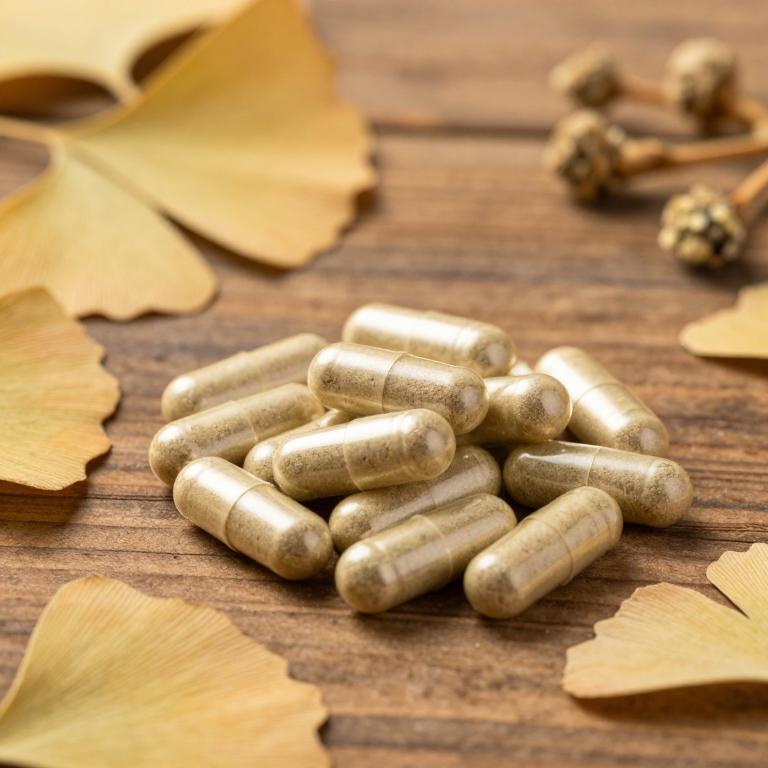
Herbal capsules for peripheral arterial occlusive disease (PAOD) are increasingly being explored as complementary therapies to improve circulation and reduce symptoms such as claudication.
These capsules often contain a blend of natural ingredients like garlic, ginkgo biloba, and horse chestnut, which are believed to support vascular health by promoting blood flow and reducing inflammation. Some studies suggest that certain herbal formulations may enhance endothelial function and dilate blood vessels, potentially alleviating the discomfort associated with PAOD. However, while these supplements may offer some benefits, they should not replace conventional medical treatments and should be used under the guidance of a healthcare professional.
It is important to note that the efficacy and safety of herbal capsules can vary, and more rigorous clinical trials are needed to establish their role in the management of PAOD.
Table of Contents
- 1. Ginkgo (Ginkgo biloba)
- 2. Red sage (Salvia miltiorrhiza)
- 3. Common grape (Vitis vinifera)
- 4. Ginger (Zingiber officinale)
- 5. St. john's wort (Hypericum perforatum)
- 6. Panax ginseng (Panax ginseng)
- 7. Yarrow (Achillea millefolium)
- 8. Wolfberry (Lycium barbarum)
- 9. Thistle (Silybum marianum)
- 10. European plum (Prunus domestica)
1. Ginkgo (Ginkgo biloba)

Ginkgo biloba herbal capsules are commonly used as a complementary therapy for peripheral arterial occlusive disease (PAOD), a condition characterized by reduced blood flow to the limbs due to narrowed arteries.
The active compounds in ginkgo biloba, such as flavonoids and terpene lactones, are believed to improve circulation by enhancing blood flow and reducing oxidative stress. Some studies suggest that ginkgo biloba may help alleviate symptoms like claudication, although results are mixed and more research is needed to confirm its efficacy. It is generally considered safe when taken in recommended doses, though it may interact with certain medications, particularly anticoagulants.
As with any supplement, it is advisable to consult a healthcare provider before use, especially for individuals with existing cardiovascular conditions.
2. Red sage (Salvia miltiorrhiza)
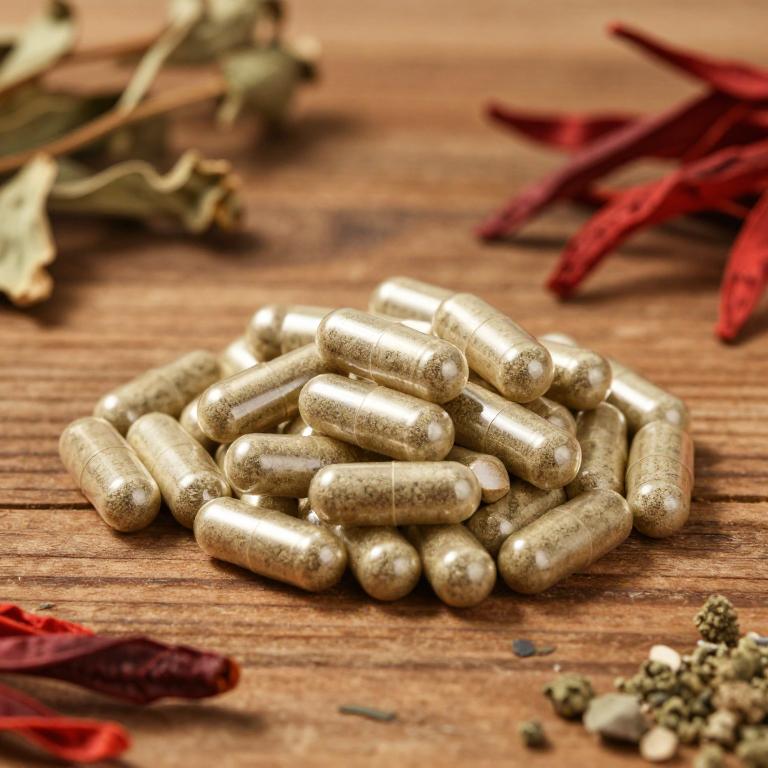
Salvia miltiorrhiza, also known as Danshen, is a traditional Chinese medicinal herb that has been increasingly studied for its potential benefits in treating peripheral arterial occlusive disease (PAOD).
The herbal capsules derived from Salvia miltiorrhiza contain active compounds such as tanshinones and salvianolic acids, which are believed to improve blood circulation and reduce oxidative stress. Clinical research suggests that these capsules may help enhance collateral circulation and alleviate symptoms such as claudication in patients with PAOD. However, while some studies show promising results, more rigorous randomized controlled trials are needed to fully establish their efficacy and safety.
As an adjunct to conventional treatments, Salvia miltiorrhiza capsules may offer a natural alternative or supportive therapy for managing PAOD.
3. Common grape (Vitis vinifera)
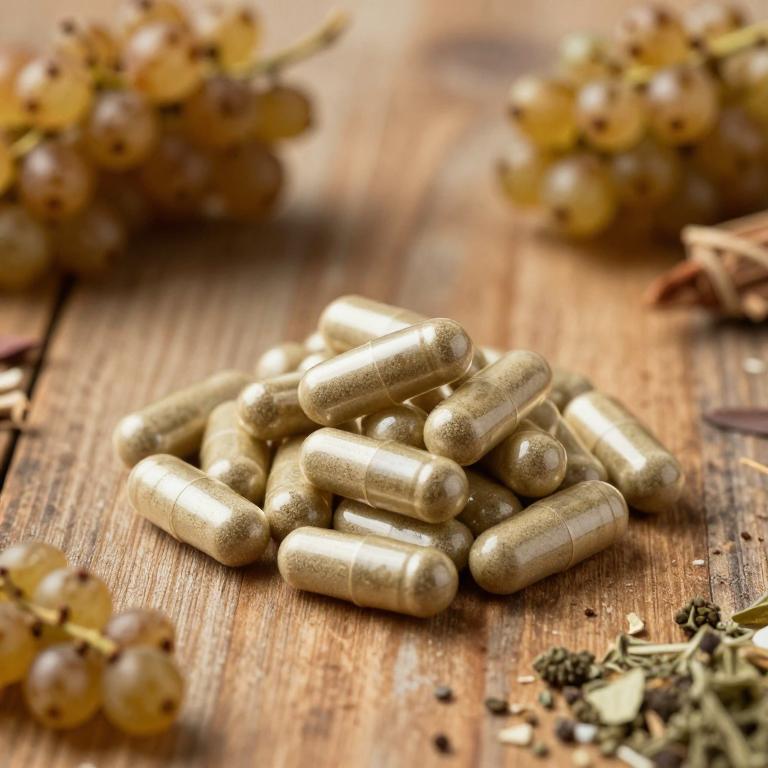
Vitis vinifera herbal capsules, derived from the grape vine, have been traditionally used for their potential cardiovascular benefits, including improving blood flow and reducing oxidative stress.
These capsules contain resveratrol, a polyphenolic compound known for its anti-inflammatory and antioxidant properties, which may support vascular health. In the context of peripheral arterial occlusive disease (PAOD), Vitis vinifera has shown promise in enhancing microcirculation and reducing symptoms such as claudication. While not a substitute for conventional treatments, they may serve as a complementary therapy to support overall circulatory function.
Further clinical research is needed to fully establish their efficacy and safety in managing PAOD.
4. Ginger (Zingiber officinale)

Zingiber officinale, commonly known as ginger, has been studied for its potential benefits in managing peripheral arterial occlusive disease (PAOD), a condition characterized by reduced blood flow to the limbs due to narrowed arteries.
Herbal capsules containing ginger extract may help improve circulation by promoting vasodilation and reducing inflammation, which are key factors in the progression of PAOD. Some research suggests that ginger's anti-inflammatory and antioxidant properties could support overall vascular health and alleviate symptoms such as leg pain and cramping. However, while preliminary studies show promise, more clinical trials are needed to establish its efficacy and safety as a complementary therapy for PAOD.
As with any herbal supplement, it is important to consult a healthcare provider before using ginger capsules, especially for individuals with existing cardiovascular conditions or those on medication.
5. St. john's wort (Hypericum perforatum)

Hypericum perforatum, commonly known as St. John's wort, is a herbal remedy that has been traditionally used for its potential cardiovascular benefits.
While primarily recognized for its antidepressant properties, recent studies suggest that hypericum perforatum may also support peripheral arterial occlusive disease (PAOD) by improving blood flow and reducing inflammation. The herb is believed to enhance nitric oxide production, which helps dilate blood vessels and improve circulation in the extremities. Herbal capsules containing standardized extracts of hypericum perforatum are often used as a complementary therapy under medical supervision.
However, it is important to note that while some preliminary evidence supports its use, more clinical research is needed to establish its efficacy and safety in treating PAOD.
6. Panax ginseng (Panax ginseng)
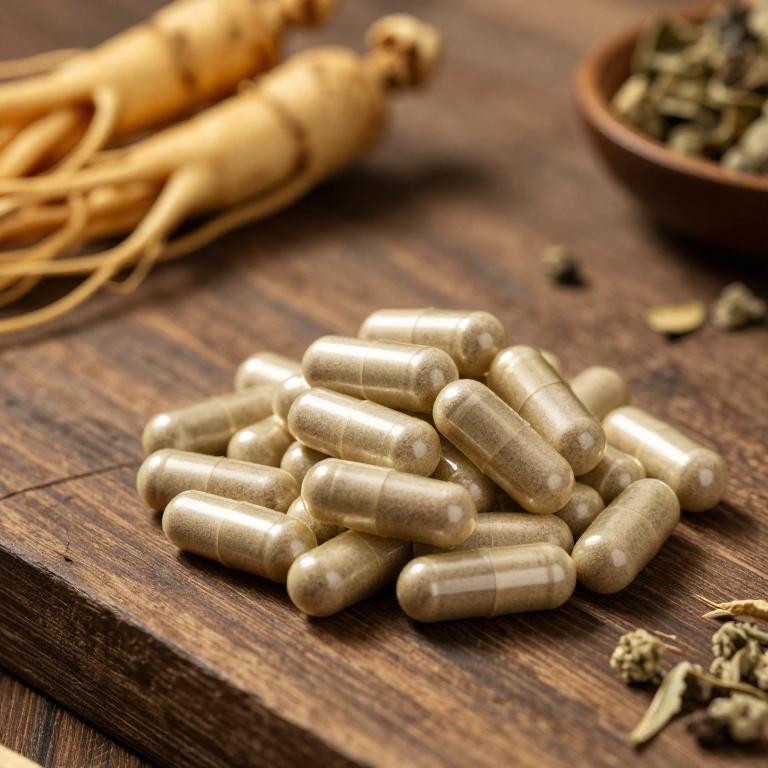
Panax ginseng herbal capsules have been studied for their potential benefits in managing peripheral arterial occlusive disease (PAOD), a condition characterized by narrowed arteries that reduce blood flow to the limbs.
The active compounds in ginseng, such as ginsenosides, may enhance blood circulation and improve endothelial function, which could support better oxygen and nutrient delivery to affected tissues. Some clinical trials suggest that Panax ginseng may help alleviate symptoms like claudication and improve walking endurance in patients with PAOD. However, while preliminary evidence is promising, more rigorous, large-scale studies are needed to confirm its efficacy and establish safe dosing guidelines.
As a complementary therapy, Panax ginseng should be used under medical supervision and not as a replacement for standard treatments like angioplasty or medications.
7. Yarrow (Achillea millefolium)
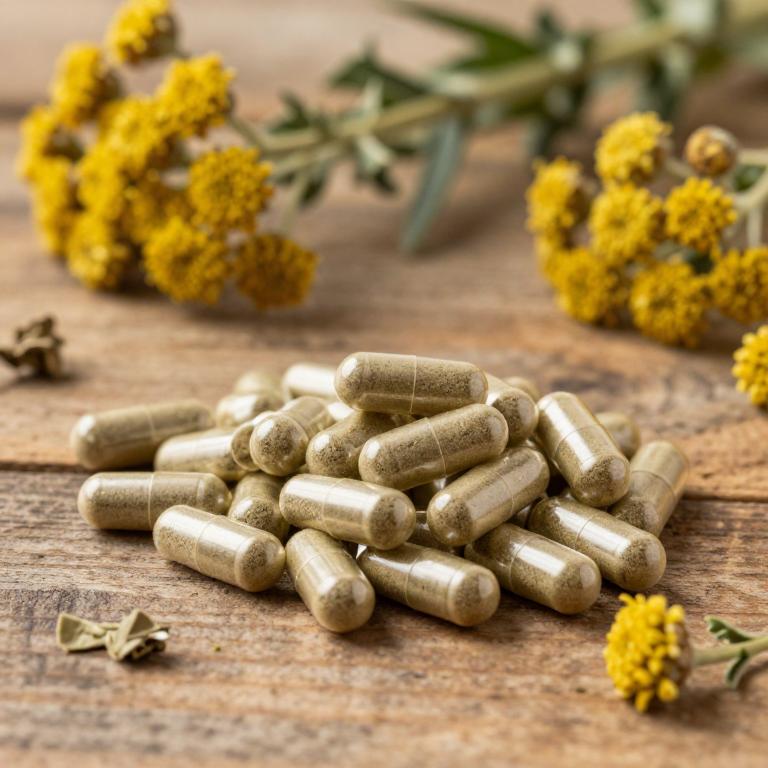
Achillea millefolium, commonly known as yarrow, has been traditionally used in herbal medicine for its anti-inflammatory and circulatory benefits.
Recent studies suggest that yarrow extract may improve blood flow and reduce oxidative stress, making it a potential complementary therapy for peripheral arterial occlusive disease (PAOD). Herbal capsules containing standardized yarrow extract are available and are often used alongside conventional treatments to support vascular health. These capsules are generally well-tolerated, though they should be used under medical supervision to ensure safety and efficacy.
While more research is needed, preliminary evidence indicates that Achillea millefolium may offer supportive benefits for individuals managing PAOD.
8. Wolfberry (Lycium barbarum)

Lycium barbarum, also known as Goji berries, has been studied for its potential benefits in improving circulation and reducing inflammation, making it a promising complementary therapy for peripheral arterial occlusive disease (PAOD).
The herbal capsules containing Lycium barbarum are rich in antioxidants, carotenoids, and polysaccharides, which may support vascular health and reduce oxidative stress associated with poor blood flow. Some preliminary research suggests that these compounds could enhance endothelial function and improve blood vessel dilation, potentially alleviating symptoms of PAOD. However, while there is growing interest in its therapeutic potential, more clinical trials are needed to establish its efficacy and safety in treating this condition.
As with any supplement, it is advisable to consult a healthcare provider before incorporating Lycium barbarum capsules into a treatment plan for PAOD.
9. Thistle (Silybum marianum)

Silybum marianum, commonly known as milk thistle, is a herbal supplement that has been studied for its potential benefits in managing peripheral arterial occlusive disease (PAOD).
The active compound in milk thistle, silymarin, is believed to exert antioxidant, anti-inflammatory, and hepatoprotective effects, which may help improve blood flow and reduce oxidative stress in patients with PAOD. Some clinical studies suggest that silymarin may enhance endothelial function and promote the repair of damaged blood vessels, potentially alleviating symptoms associated with poor circulation. However, while preliminary research is promising, more large-scale, randomized controlled trials are needed to establish its efficacy and safety in treating PAOD.
As with any herbal supplement, it is important to consult with a healthcare provider before incorporating silybum marianum into a treatment plan for peripheral arterial disease.
10. European plum (Prunus domestica)
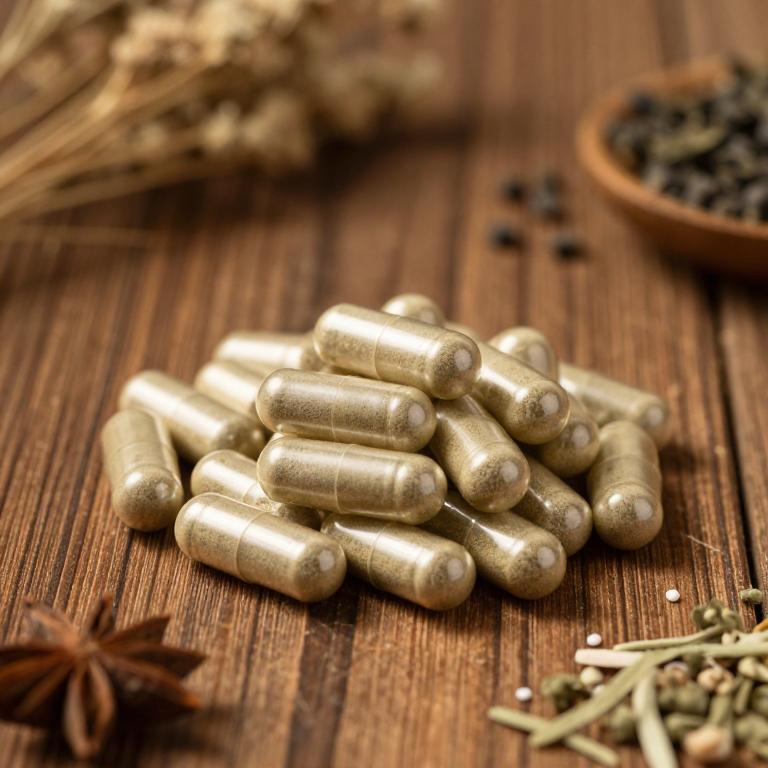
Prunus domestica, commonly known as the European blackberry or blackcurrant, has been studied for its potential benefits in managing peripheral arterial occlusive disease (PAOD).
The herbal capsules derived from Prunus domestica contain bioactive compounds such as anthocyanins, flavonoids, and polyphenols, which exhibit antioxidant and anti-inflammatory properties. These compounds may help improve blood flow and reduce oxidative stress in the circulatory system, which are key factors in PAOD. Some clinical studies suggest that regular consumption of Prunus domestica supplements may support vascular health and alleviate symptoms associated with reduced blood flow in the limbs.
However, it is important to consult a healthcare professional before using these capsules as a complementary therapy for PAOD.